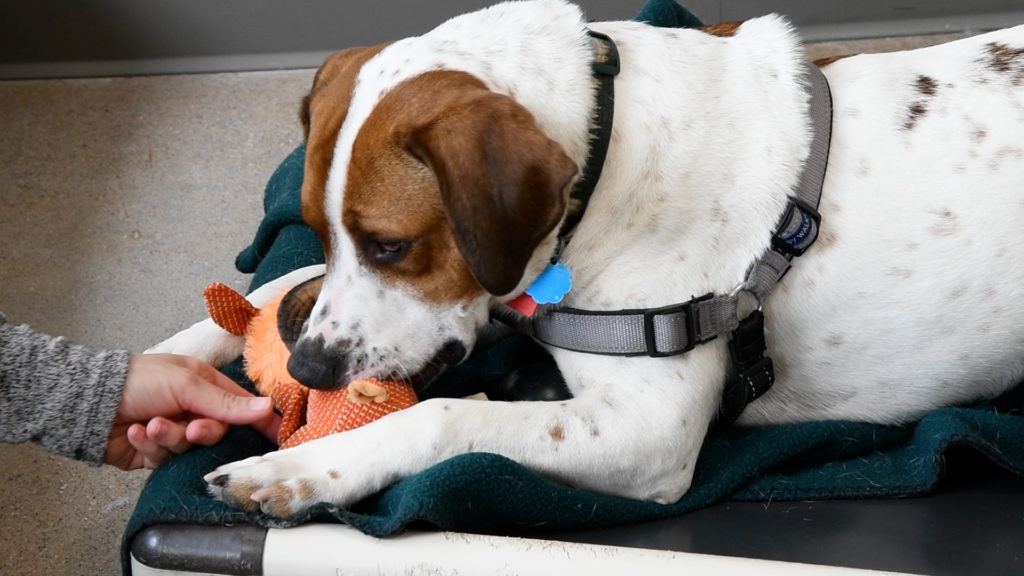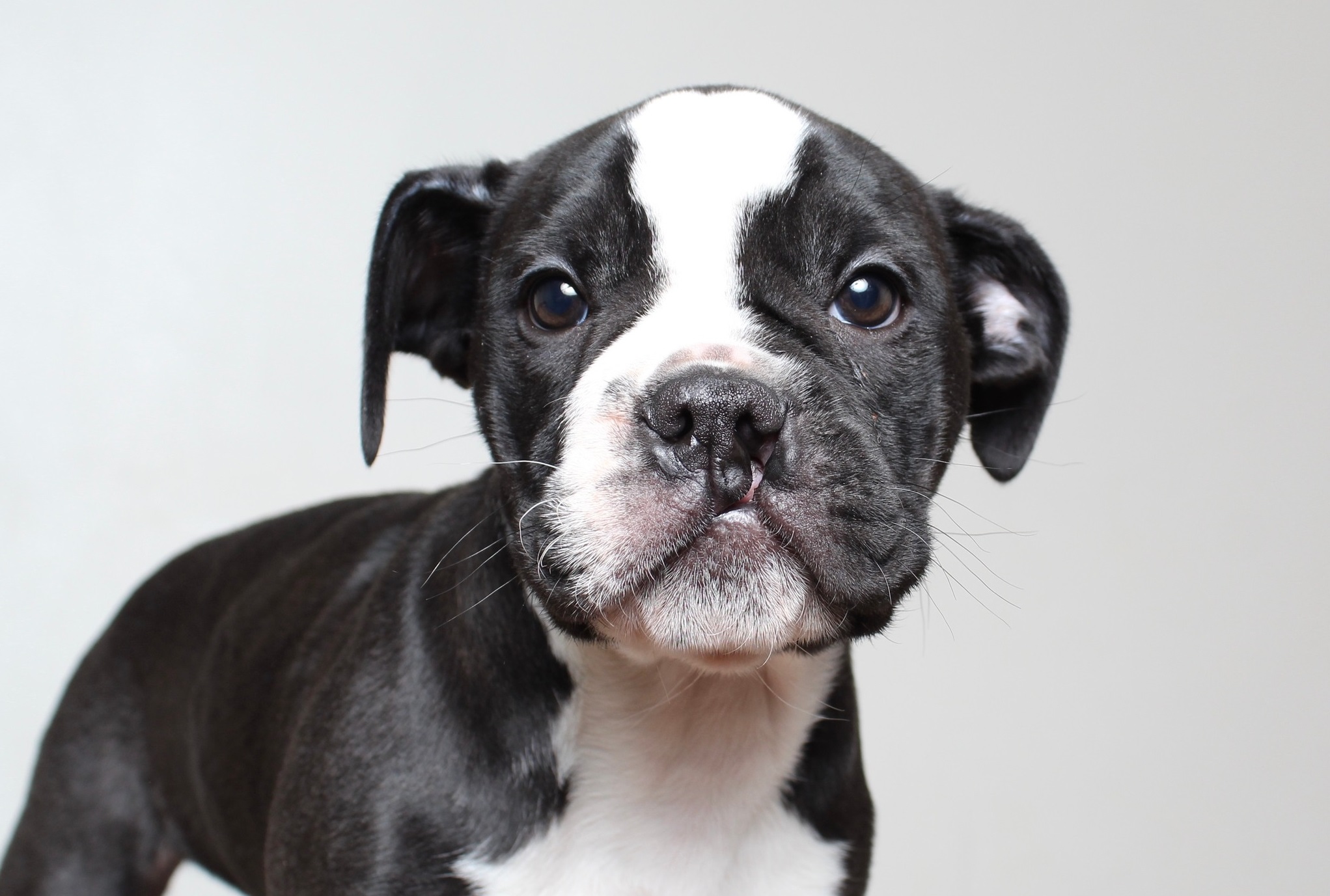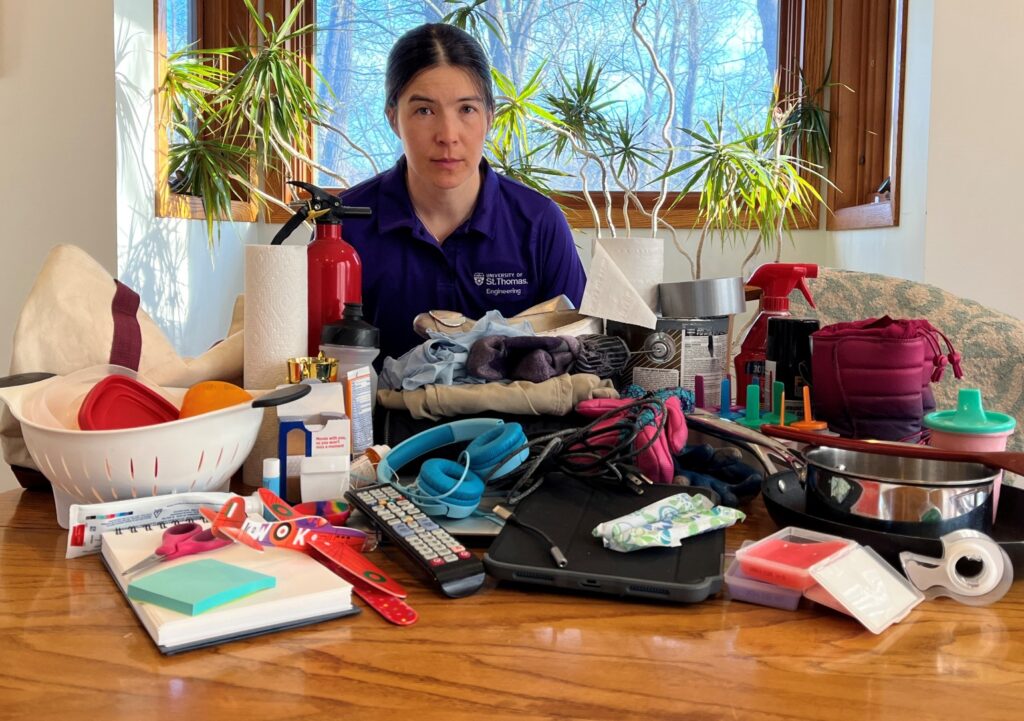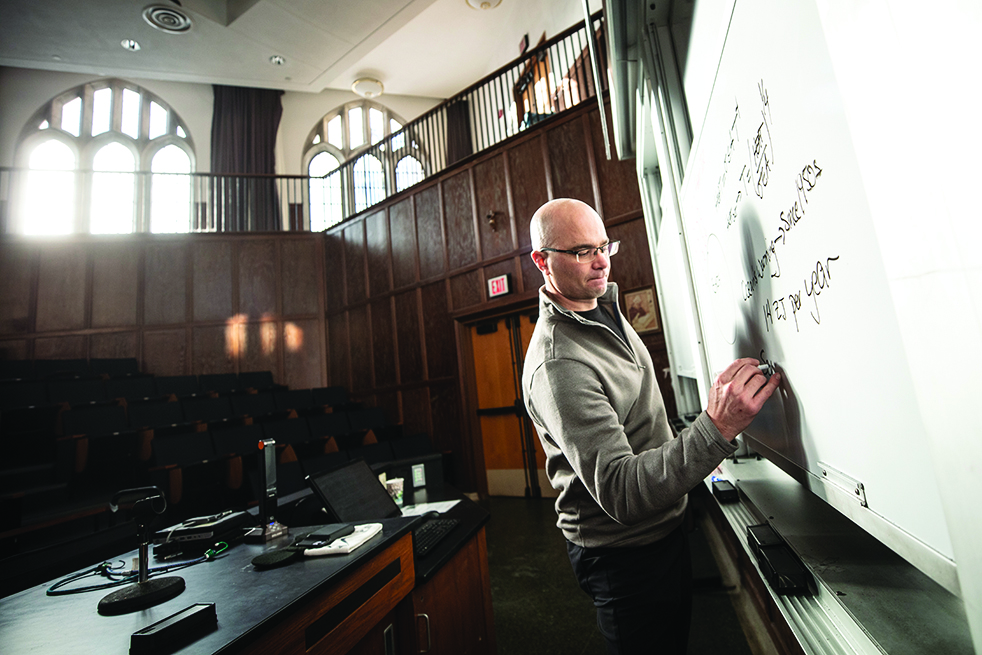As animal rescues work to recover from the pandemic, Secondhand Hounds in Minnetonka has a secret weapon: three data science graduate students from the University of St. Thomas.
When the pandemic hit in March 2020, thousands of families went searching for a new furry friend. Unfortunately, many of those pets are now being returned. As their human owners return to in-person work, pets may experience separation anxiety, making it more difficult for the owner to care for its needs.
Looking to cut down on surrenders and help keep pets in their loving homes, Secondhand Hounds turned to St. Thomas.
Working as part of a graduate data science capstone project, students were tasked with finding ways to collect and analyze Secondhand Hounds’ data from local surrenders.
“When someone applies online to surrender an animal, they’re giving us a lot of information,” said Maggie Schmitz, director of marketing for Secondhand Hounds. “Prior to the St. Thomas project, we didn’t have a super automated way of looking at this data.”
St. Thomas graduate students Nanda, Sumit Panjwani ’22 MS and Ola Sanusi ’23 MS got to work, relying on lessons learned in the classroom and extra mentorship from local data engineering firm phData.
“We started this project … to better help them be able to preempt surrendering of pets by their owners,” Sanusi said. “If they can analyze that data they’ll find out factoids that make people want to surrender their pets, which they can now try to mitigate and reduce surrender applications.”

With a manual entry system now transformed by the students’ use of cloud technologies, Secondhand Hounds hopes to put the information it will glean from each surrender application toward new initiatives.
“Most people who come to us would love another option than surrender,” Carrie Openshaw, program director for Secondhand Hounds, said. “If given another opportunity they would take a resource and go a different route.”
Options include additional owner training or even therapy, training or medication for the pet to help calm anxiety.
The experience is considered a win-win from all sides. Secondhand Hounds is walking away with overhauled systems, while St. Thomas graduate students have enjoyed a walk in the real world.
"It was as life-changing for us as it was for them," Nanda said.
“We’re always looking for projects in the real world where students can apply whatever they have learned in class and go and solve a real-world problem,” said Manjeet Rege, professor and chair of graduate programs in software and data science.
And the journey is far from over. Secondhand Hounds hopes to apply its new data collection system to other areas of its operation, while St. Thomas hopes to share the project more widely, so that other rescues might benefit in similar ways.







